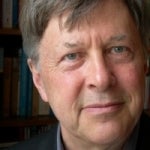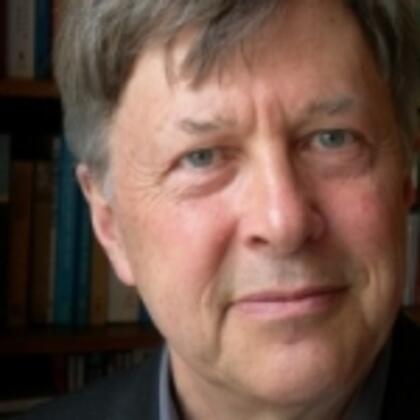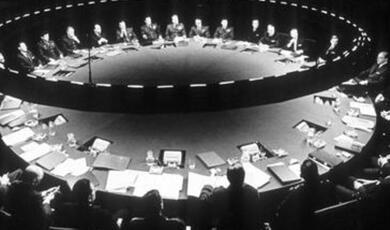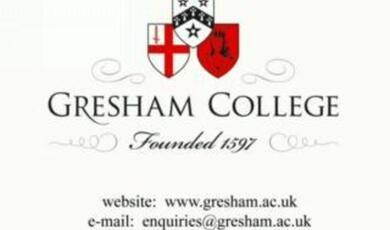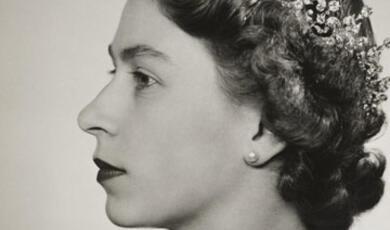Should we take our leaders as seriously as they take themselves?
Share
- Details
- Transcript
- Audio
- Downloads
- Extra Reading
Political leaders invest time and energy in cultivating their public images and their identity as rulers, but the cultivation is as much for themselves as for subjects and voters. What are the consequences, good and bad, of this for ordinary citizens?
Download Transcript
Should we take our leaders as seriously as they take themselves?
Professor Rodney Barker
Political leaders invest time and energy in cultivating their public images and their identity as rulers, but the cultivation is as much for themselves as for subjects and voters. What are the consequences, good and bad, of this for ordinary citizens?
1.King John
King John was not a good man,
And no good friends had he.
He stayed in every afternoon…
But no one came to tea.
And, round about December,
The cards upon his shelf
Which wished him lots of Christmas cheer,
And fortune in the coming year,
Were never from his near and dear,
But only from himself.
The poem draws attention to the ways in which rulers take themselves seriously, the energies they put into it,
*1 PICTURE
Of course that’s not all rulers are doing. If it were they would not be rulers, just solipsistic madmen. But it is one of the things they are doing
We suspect that whereas monarchs and emperors may be a bit like King John, democratic rulers are like the Wizard of Oz. Whatever the public show, back at home they are just like you and me.
But perhaps they are not. I want to explore the consequences of that alternative view, and particularly the consequences for the rest of us, ordinary subjects and citizens, of that pre-occupation of rulers with their own self-description, identity cultivation, and legitimation.
Three long examples, preceded by some short ones:
Example Negara. : ' the public dramatization of the ruling obsessions of Balinese culture: social inequality and status pride. It was a theatre state in which the kings and princes were the impresarios, the priests the directors, and the peasants the supporting cast, stage crew, and audience.'
'Court cermonialism was the driving force of court politics; and mass ritual was not a device to shore up the state, but rather the state, even in its final gasp, was a device for the enactment of mass ritual. Power served pomp, not pomp power.'
Gormenghast. Fictional, but
*2, 3, PICTURE The Chinese emperors’ cycle of rituals, marked by both their elaborateness and their privacy. The most elaborate ritual sacrifice of the year was the sacrifice to Heaven, when the Emperor went in procession from the Forbidden City to the Temple of Heaven, but did so along a route entirely masked from public view.
The lesser annual sacrifice, to the God of Agriculture, was similarly populated by officials, servants, and courtiers, but out of public view
Similarly in the imperial banquet in the garden of ten thousand trees, when the Qianlong Emperor received submission from the Khalkha Mongols in 1754, even the ten thousand trees are screened off from the privacy of the ceremony
Versailles:
The progression of visitors to the royal presence at Versailles was through a series of courts, vestibules, and courtyards of increasing grandeur and remoteness
*4,5,6, PICTURES
'The practice of etiquette is, in other words, an exhibition of court society to itself. Each participant, above all the king, has his prestige and his relative power position confirmed by others...The immense value attached to the demonstration of prestige and the observance of etiquette does not betray an attachment to externals, but to what was vitally important to individual identity.' (Norbert Elias)
Even the court’s leisure was choreographed, literally so:
Dancing with Louis XIV: Masques, ritual, and the non-utilitarian life of the court
And it was seen only by the participants.
It had to wait for the camera and the 20th century to give the public a glimpse of the rituals of the palace, and by then they were of a more subdued kind
*7 PICTURES
Russian diplomacy: quote from Thomas Frank,
‘The Ambassador, together with the diplomatic personnel from the Embassy and the Soviet officials, enter the hall: the Head of the appropriate geographical Department of the Ministry of Foreign Affairs stands on the right of the Ambassador, on the left is the Head of Protocol Department.
Simultaneously, the Chairman of the Praesidium of the Supreme Soviet enters through the opposite door in the hall; on his right is the Secretary of the Praesidium; on his left the Deputy Minister of Foreign Affairs. The Ambassador stops one or two paces short of the centre of the hall, opposite the Chairman of the Praesidium, and greets him with a slight bow. The Head of the Protocol Department presents the Ambassador to the Chairman of the Praesidium.’
Visit of JFK to Britain and Macmillan in 1963 five months before his assassination:
A memo from Macmillan's private secretary, Philip de Zulueta, a few weeks before JFK's arrival on 29 June), reports that one of the President's aides had accepted the offer of Macmillan’s own room at Birchgrove, and would place his valet next door.
It seems the Prime Minister failed to take account of the presidential backache or his preference for a double rather than a single bed. Mr Zulueta said: "The only complicated arrangement for the house is that the President likes a double bed and brings his own mattress and pillows (I suppose it is for his back). They [the White House] will let us know and the Foreign Office will get one."
Further documents reveal that Whitehall was clearly taken aback by the extent of the preparation for JFK's arrival at Gatwick airport. A Rolls-Royce was to be provided for the President's use, along with a helicopter, an ambulance and an unspecified quantity of blood matching his type at the nearby East Grinstead hospital.
The communications set-up at the Grand Hotel in Brighton, 25 miles from Birch Grove, included 150 lines for the press corps, 50 secure lines including permanent connections between the White House, the President's Boeing 707, the helicopter pad next to the Red Lion pub and five to JFK's bedroom.
Harold Lasswell and Merritt Fox contrast autocratic separation, the Forbidden City or the Kremlin under both Tzars and communism, with popular government in the United State:
‘The sharpest contrast to despotism and autocracy is a well-established popular government. The official meets the citizen on a common level and the chief of state lives with an insignificant physical barrier separating him from his fellows. The White House in Washington expresses the basic relationship that connects the transitory holder of the presidential office and the rank and file of the nation. The White House is neither remote nor exalted; it has the approachability of a private home.1
But the White House is clearly far more ‘exalted’ than the average American home, and significantly less approachable. The citizens of the United States may visit and be impressed by the White House once or even several times in a lifetime,2 but the President can be impressed by it, and what it says about the incumbent of the presidential office, every day.
Murray Edelman takes a different view:
‘That a man meets with his aides in the Oval Office of the White House reminds him and them and the public to whom the meeting is reported of his status and authority as President, just as it exalts the status of the aides and defines the mass public as nonparticipants who never enter the Office.’3
The important aspect of all this is that is private. Whatever rulers may do to impress their subjects, there appears to appear a huge swathe of behaviour which functions principally to impress the rulers themselves, and reinforce that impression in mutual support.
There is a massive swathe of the rituals of rule, in all regimes, from which ordinary people are excluded, and where the participants, and observers, are themselves part of the ruling elite either of that country or of another.
And the rituals by which they do so have remarkable continuity: Medieval monarchs cf Blair and his seminar to Clinton
3.What does this suggest we need to add to our understanding of what people are doing when they govern?
The role of rulers as representatives of the electorate and of outside interests remains important
But there is another dimension, which is the dimension not only of the court but just as much as of the White House, Downing Street, or the presidential palace.
Since rulers appear to devote time, resources, and energy to cultivating and maintaining their particular identity, we need to add this dimension to our conception of government
4. What are the consequences of governmental self-absorption for government?
a) Insulation from the concerns of ordinary citizens. Government has its own priorities, and its own, parochial, view of the world
The example of the European Union
Much discussion of legitimacy deficit or crisis
But this misses the point that there are neither citizens nor crisis
And it diverts attention from the very real legitimation crisis which DID occur, but occurred within the government of Europe, not between it and its citizens:
1999, crisis in European Commission over corruption, incompetence, and insular insensitivity
Evident disjuncture in the events surrounding the resignation of the entire body of Commissioners in 1999, but it was between members of the administrative apparatus, not between the European Union and individual citizens. The disjuncture was between Parliament’s and Commissioners’ perceptions of their respective legitimated identities. There were no consequences for the behaviour of citizens.
Santer’s claims that he was ‘blanchi’ did not go down well in the press or with at least some of its readers, but it was the European Parliament, were is was made, that it most importantly jarred.
The crisis of 1999 was, amongst other things, a clash of legitimations, and of the identifications which went with them, but one which took place, and was principally of consequence, within and amongst the institutions and personnel of government.
b) Popular opinion can be reactionary, intolerant, parochial and ill informed. Henry Maine’s conservative criticism
Death penalty in the UK
This is the idealist defence of governmental elitism, found in its prescriptive form in philosophical idealism, and in its descriptive form in Marxism: the state as the higher intelligence of society.
In its crudest form it is the Jay remark that ‘the gentleman in Whitehall really does know best’, and the standard ploy, ‘if you knew what we knew, but cannot tell you’, justified by Bagehot’s old tale about the kitchen staff
c) There are many counter arguments to the higher intelligence argument, from anarchists to market liberals such as Hayek
And this very view of the uniqueness of ruling provides an entirely contrary view: it is precisely because rulers do not understand the world in the same was as do their subjects, that they cannot be trusted.
insulated opinion can be messianic, careless of the well being and wishes of citizens, and profligate with public welfare.
d) privileged information versus blindness to ‘the real world’
What remedies are available to ordinary subjects and citizens? The democratic corrective
a) Democracy can provide a check which is not available in other regimes
b) How democracy makes these checks.
Democracy as dissent, distrust, unpredictability.
Democracy has many forms, of which voting is one only:
But those weapons are not infallible, and the insulation of rulers can be robustly immune to external voices:
* 8 PICTURE
We often have to shout very loudly to make Narcissus hear us
1 Harold D. Lasswell, Merritt B. Fox, The Signature of Power: Buildings, Communication, and Policy (New Brunswick, N.J. Transaction Books, 1979), P.16.
2 They can now visit a virtual White House whenever they wish, and tour its public spaces. www.whitehouse.gov/. Circuses have been replaced by vdus
.3 Murray Edelman, 'Space and the Social Order' , Journal of Architectural Education 32, 3, November 1978, 2-7, 2.
© Professor Rodney Barker, Gresham College, 106October 2006
This event was on Tue, 10 Oct 2006
Support Gresham
Gresham College has offered an outstanding education to the public free of charge for over 400 years. Today, Gresham plays an important role in fostering a love of learning and a greater understanding of ourselves and the world around us. Your donation will help to widen our reach and to broaden our audience, allowing more people to benefit from a high-quality education from some of the brightest minds.


 Login
Login
